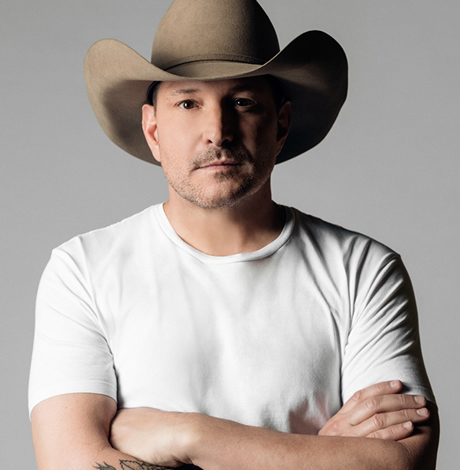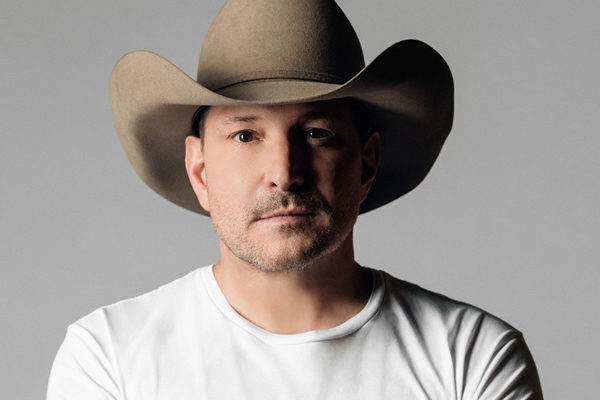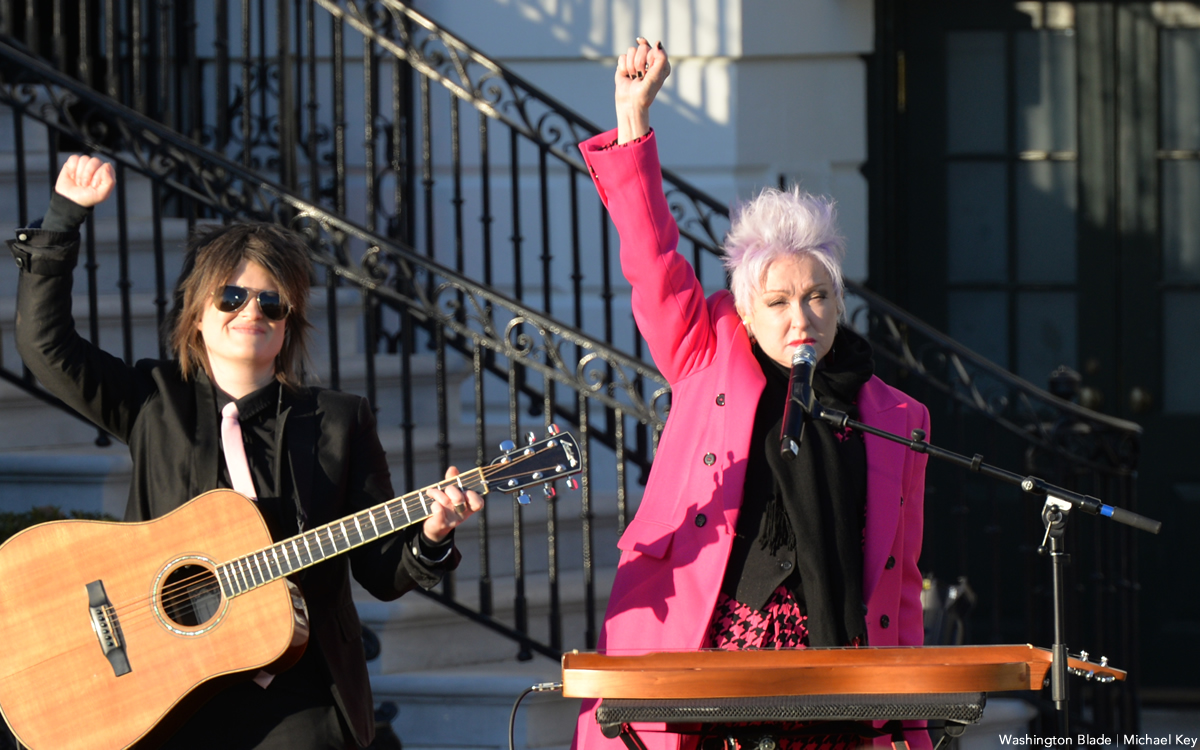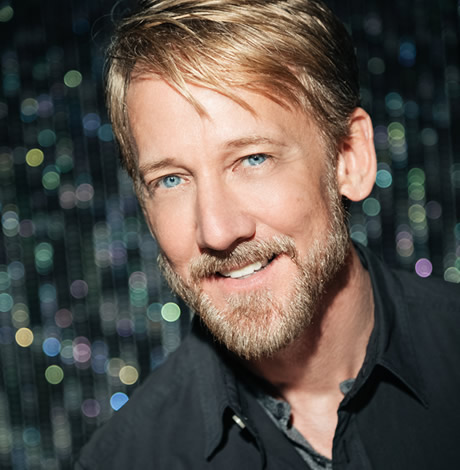Music & Concerts
New Ty Herndon album is mixed bag
Out country star covers himself and others on uneven new project


It’s been 24 years since the twangy country hit “What Mattered Most” stormed the country charts with its iconic chorus about a blue-eyed Louisiana girl. Like the best ‘90s country music artists, Ty Herndon had a number of songs about broken-hearted men thinking about lost loves.
But nearly two decades after the release of his debut album, Herndon became one of the first openly gay country music stars, coming out in a 2014 interview with People Magazine. And his new album, the rightfully named “Got It Covered,” features re-releases of his biggest country hits from the ‘90s, as well as covers of the likes of Bonnie Raitt and Carrie Underwood. In many ways, the album allows for a reappraisal of his earlier hits, particularly “What Matters Most,” which has been refitted with new pronouns.
After a consistent series of hits in the mid-to-late ‘90s, Herndon became largely absent from the country music spotlight after his 1999 record “Steam,” not unlike many others artists who had a harder time connecting with audiences after the turn of the millennium.
“Got It Covered” is largely an effort to return to those roots, and perhaps, to transplant them to more contemporary soil. But there is a something more than slightly disturbing about trying to relive one’s musical past in this way. We generally expect covers to add something new to an old song, but for Herndon, the new versions of his older songs have lost part of their soul in the process.
The most touching new version is his updated “What Mattered Most.” The chorus of the alternate version on the new album has changed the Louisiana girl into a boy: “His eyes are blue, his hair is long/In ’64 he was born in Baton Rouge.” It’s incredible to think about the journey that such a song has been on, as indicated by the difference between the 1995 version on his “What Mattered Most” album and new recording. But at the same time, the softer, more nasal vocals and classic sounding ‘90s instrumentation have disappeared, covered up by heavier sound, dominated by electric guitar.
Take “I Need to Be Loved Too Much” from his 1997 album “Living in a Moment.” The new version reproduces the same song structure without the classic instrumentation — Herndon sent the fiddles packing for his new recordings. And gone is the nasal vocal quality that Herndon and male country singers of the ‘90s shared to a lesser degree with John Anderson, whose classic 1991 “Straight Tequila Night” serves as a prime example.
The problem is not the quality of Herndon’s catalogue, but rather the raison d’être of an album that re-records his greatest hits with no real change other than updated instrumentation, with the exception of the lyrics of “What Mattered Most.” If anything, the new album makes ‘90s originals stand taller, as good representatives of a particular moment in country music.
Among the covers of songs by other artists, Herndon has a version of Bonnie Raitt’s 1991 classic “I Can’t Make You Love Me.” It’s impossible not to enjoy the song, but it’s unclear what Herndon adds with his recording. George Michael offers a version that differs from Raitt’s on his 1998 “Ladies and Gentlemen: The Best of George Michael.” It’s smoother and sexier. Nor is this simply question of genre. Justin Vernon, of the folk pop group Bon Iver, recorded a cover of the song with over 40 million views on YouTube, sung in his signature falsetto, that breathed new life into the classic.
The best cover is of “So Small,” recorded by Carrie Underwood on her 2007 album “Carnival Ride.” Although it’s impossible to top Underwood vocally, Herndon’s version in his (not so twangy anymore) baritone works surprisingly well.
Gay country music fans are lucky to have someone like Herndon on a scene and he has solid lineup of classics under his belt. But perhaps it’s better for someone of his stature to forge ahead, rather than revisit the past.
Music & Concerts
Washington chorale kicks off Christmas with vibrant program
‘Thine Own Sweet Light’ concerts planned

The full Washington Master Chorale will return for its annual holiday concert tradition with “Thine Own Sweet Light” on Friday, Dec. 19 and Sunday, Dec. 21 at St. Ann’s Catholic Church (D.C.) and Church of the Epiphany (D.C.).
The concert will feature the rich sounds of the 50-voice, a cappella chorus performing lush, seasonal choral music inspired by the theme of light. Highlights include Edvard Grieg’s “Ave Maris Stella,” Eric Whitacre’s “Lux Aurumque,” and Christopher Hoh’s “Holy, Holy, Holy is the Lord God of Hosts.” The program will also present a new work by Barcelona composer Josep Ollé i Sabaté, along with charming holiday folk songs and seasonal favorites.
For more details, visit the Washington Master Chorale website.
Music & Concerts
Queer mega stars (and allies) ready to take D.C. stages this fall
Watch LGBTQ icons light up stages across the DMV as they sing, dance, and drag their way through spectacular shows.

One of the best ways to welcome fall is by catching LGBTQ performers (and their allies) lighting up some of the D.C. area’s biggest stages. From country and pop to drag and rock, the season is packed with shows you won’t want to miss.
Maren Morris – The country, rock, and pop diva—known for hits like “The Bones” and for standing up against Nashville’s anti-LGBTQ voices—takes the stage at Wolf Trap (1551 Trap Rd, Vienna, Va.) on Friday, Sept. 12 at 8 p.m. Tickets start at $64.
RuPaul – The mother of modern drag and host of “RuPaul’s Drag Race” will spin a DJ set at Echostage (2135 Queens Chapel Rd NE) in Northeast D.C. on Sept. 20. Before RuPaul swaps wigs for headphones, Trade and Number 9 owner Ed Bailey will warm up the decks. For tickets and details visit echostage.com.
Conan Gray – The queer pop prince, celebrated for his Gen Z anthems like “Heather” and “Maniac,” brings his Wishbone Pajama Show to EagleBank Arena in Fairfax, VA, (4500 Patriot Cir) on Sept. 20 at 8 p.m. Tickets start at $113. For more info visit shop.conangray.com/pages/tour.
All Things Go Music Festival – With a lineup that includes Noah Kahan, Lucy Dacus, Kesha, Clairo, Doechii, and more, the beloved LGBTQ-friendly festival takes over Merriweather Post Pavilion (10475 Little Patuxent Pkwy, Columbia, Md.) Sept. 26–28. For tickets and details visit allthingsgofestival.com.
BERTHA: Grateful Drag – This unique tribute brings drag artistry and the sounds of the Grateful Dead to The Atlantis (2047 9th St NW) on Sept. 27. Tickets start at $47 at theatlantis.com.
Peach PRC – Rising Australian pop star and out lesbian, whose confessional tracks like “Perfect for You” and “Forever Drunk” have made her a queer TikTok darling, performs at The Atlantis on Sept. 29 at 6:30 p.m. The show is general admission only. Additional details are on theatlantis.com.
Addison Rae – The TikTok star-turned-pop princess, who’s crossed over into music with glossy hits like “Diet Pepsi” brings her sold out show to The Anthem (901 Wharf St., S.W.) on Sept. 30. Tickets are sold out, but resale options start around $80. For more info visit theanthemdc.com.
The Rocky Horror Picture Show 50th Anniversary – Celebrate the cult classic that’s been a queer midnight-movie staple for decades, with Barry Bostwick (a.k.a. Brad Majors) at the Warner Theatre (513 13th St., N.W.) on Oct. 2 at 8 p.m. Tickets start at $41 via Ticketmaster.
Chaka Khan, Patti LaBelle, Gladys Knight & Stephanie Mills – Four legends, one stage. Between Khan’s funk, LaBelle’s soul, Knight’s R&B, and Mills’ powerhouse vocals, this concert at Capital One Arena (601 F St NW) on Oct. 3 at 8 p.m. promises pure diva magic. Tickets start at $103. For more details visit capitalonearena.com.
Lorde – Joined by The Japanese House and Chanel Beads, the Grammy-winning New Zealand singer-songwriter behind “Royals” and “Solar Power” returns to The Anthem on Oct. 4 at 7 p.m. Lorde has long been embraced by queer fans for her dreamy pop and subversive lyrics. For more info visit theanthemdc.com.
Andy Bell (of Erasure) – The British queer rock icon, best known for synth-pop classics like “A Little Respect” and “Chains of Love,” brings his Ten Crowns Tour to the Lincoln Theatre (1215 U St., N.W.) on Friday, Oct. 17 at 8 p.m. Tickets are $90.45.
Doechii – The self-described queer “Swamp Princess”—and WorldPride 2025 headliner—continues her breakout year with the Live from the Swamp Tour at The Anthem on Oct. 21 at 8 p.m. Known for blending rap, R&B, and avant-garde performance art, Doechii is one to watch. Tickets start at $153.
Neon Trees – The out-and-proud Utah rockers behind “Everybody Talks” and “Animal” perform at the Lincoln Theatre on Friday, Oct. 24 at 8 p.m. Lead singer Tyler Glenn, who came out publicly in 2014, has become a strong queer voice in alternative rock. For tickets and info visit impconcerts.com.
Sasha Colby – The “RuPaul’s Drag Race” Season 15 winner strips down on the Stripped II Tour at the Warner Theatre on Nov. 2 at 8 p.m. Tickets available now on Ticketmaster.
Lola Young – The bisexual indie-pop sensation, whose raw songwriting has earned her millions of TikTok fans and multiple chart soaring hits visits The Anthem on Nov. 9 at 8 p.m. Tickets are still available.
Opera Lafayette
Featuring Mary Elizabeth Williams as Dido
+ Elijah McCormack, Chelsea Helm
Oct. 16, 7:30 p.m.
Sixth & I
PostClassical Ensemble
The Pale Blue Do: A Musical Voyage Inspired By Nature
Featuring National Geographic’s Enric Sala, Guest Curator
Wednesday, November 19, 7:30 p.m.
Terrace Theater
Washington Concert Opera
Starring Kate Lindsey, Theo Hoffman, John Moore, and Fran Daniel Laucerica
Nov. 23, 6 p.m.
Lisner Auditorium
Washington Master Chorale
An intimate a capella concert taking place in an architectural jewel, featuring cherished choral gems from Anglican and Catholic tradition and early American hymns. The concert will also present the world premiere of Christopher Hoh’s Holy, Holy, Holy is the Lord God of Hosts, and hymn singing featuring Robert Church, organist and choirmaster at St David’s.
Oct. 18, 7:30 p.m.
October 19, 5 p.m.
St. David’s Episcopal Church
Music & Concerts
Cyndi Lauper ready to have fun in Virginia
Superstar to bring final leg of farewell tour to Jiffy Lube Live

Superstar Cyndi Lauper will bring the final leg of her farewell tour “Girls Just Wanna Have Fun” to Bristow, Va., on Thursday, July 24 at Jiffy Lube Live.
Lauper’s international Farewell Tour – her first major headlining run in a decade – kicked off in North America last October, and included her first time ever headlining (and selling out) Madison Square Garden. Lauper’s performances have earned raves from the New York Times, Rolling Stone, Billboard, and many more, and surprise guests have included Chaka Khan, Sam Smith, and Hayley Williams. The tour just visited the U.K. and Europe, and will head to Australia and Japan in April.
Tickets are available on Live Nation’s website.
-

 National5 days ago
National5 days agoLGBTQ activists mourn the Rev. Jesse Jackson
-

 Massachusetts4 days ago
Massachusetts4 days agoEXCLUSIVE: Markey says transgender rights fight is ‘next frontier’
-

 New York4 days ago
New York4 days agoLawsuit to restore Stonewall Pride flag filed
-

 Opinions4 days ago
Opinions4 days agoGay Treasury Secretary’s silence on LGBTQ issues shows he is scum


















